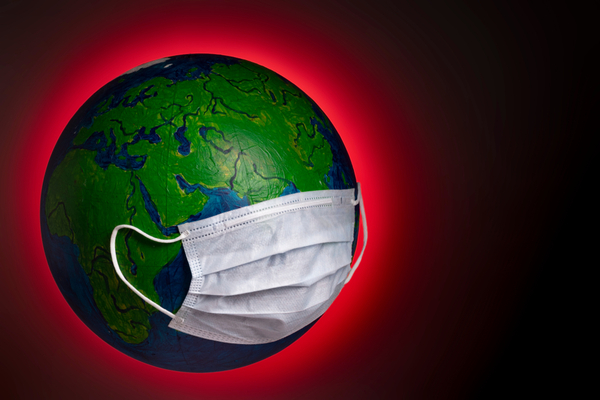The World Health Organization (WHO) officially declared the coronavirus outbreak a pandemic on Wednesday, clarifying weeks of confusion over whether or not it constituted one. “We expect to see the number of cases, the number of deaths and the number of affected countries, climb, even higher,” Tedros Adhanom Ghebreyesus, director-general of the WHO, told reporters during a press conference. “And we’re deeply concerned — most by the alarming levels of spread and severity. And by the alarming levels of inaction.”
According to the latest data from Johns Hopkins University, the pandemic now includes over 121,000 cases in more than 100 countries — including at least 1,000 cases in the U.S. Over 4,300 people have died. As the WHO urges more countries to take action, and ramp up containment efforts, here’s what you need to know about pandemics.
Pandemic means “all people”
The word “pandemic” itself originates with the Greek work pándēmos which translates to “all people.” The WHO defines it as the “worldwide spread of a new disease” — a recent example being the HIV crisis. “A pandemic just means that there are many cases of infectious diseases in multiple parts of the world and that it constitutes something that’s above the baseline rate that you’d expect,” infectious disease expert Amesh A. Adalja, MD, senior scholar at the Johns Hopkins Center for Health Security, told Yahoo Lifestyle in an earlier interview. “It doesn’t say anything about severity.”
The CDC will activate specific protocols
While the WHO no longer uses the pandemic term as an official classification, the CDC has what’s known as a Pandemic Severity Assessment Framework (PSAF) that it deploys when one is declared. The tool measures many things, including what decisions federal, state and local health officials need to make in order to contain the virus in their communities. On Tuesday, officials in New Rochelle, NY, announced a one-mile radius containment zone to stop the spread of the virus — now that a pandemic has been declared, more of these declarations may follow.
The WHO is likely to release its own guidelines
Based on past pandemics, the WHO Is likely to release what’s called an official protocol report in the coming days, outlining for the 196 countries that participate in the UN what steps need to be taken to immediately contain the virus. The report may address things like travel, sanitation, quarantine strategies and more.
The word is meant to galvanize
The coronavirus was declared a global health emergency — the most severe on the WHO’s six-part scale — months ago, but WHO officials deciding to use the pandemic terminology is likely meant to intentionally galvanize countries to fight. “When you declare a pandemic, everybody has to sit up and pay attention,” William Schaffner, MD, an infectious disease specialist and professor at the Vanderbilt University School of Medicine said.
For more information on what a pandemic means, or how to prepare, go to the Department of Homeland Security’s information page.
—
Photo Credit: Vikentiy Elizarov / Shutterstock.com
